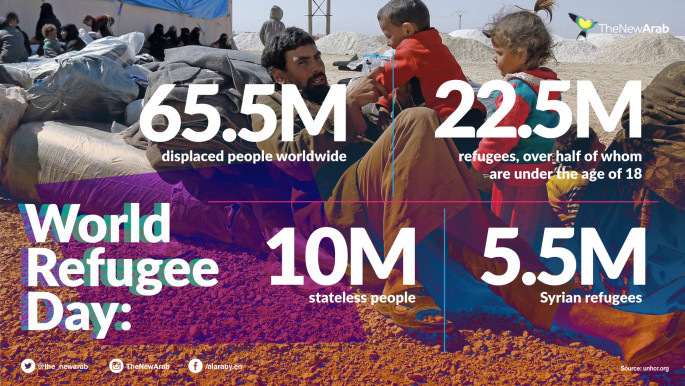Refugees 'live in squalor' on Greek islands as arrivals surge
 |
|
The new arrivals are putting added strain on already overcrowded sites at a time when aid agencies are reducing their presence on the ground.
"I told the authorities I don't want to stay here. I want to go to London, my uncle is there," said Naween, looking for a second T-shirt to ward off the chill October air.
"It's so cold here. No shower. The situation is too bad."
The resurgence of migrants making the journey to Europe comes despite the EU deal with Turkey in March 2016, which drastically reduced the number of arrivals, and amid political tensions between Ankara and Brussels.
Last month, Amnesty International said European states had "fundamentally failed" to fulfil their promises to relocate refugees and asylum-seekers leaving thousands of people abandoned in Greece and Italy
'Deadlock'
A hundred metres away from the makeshift camp in Samos barbed wire surrounds the official reception centre, which is overflowing with people.
Journalists are banned from entering without permission, while there are just 700 places for more than 2,500 migrants.
"No toilets, no water, and the food is not good for the youngest," said Saura, an Iraqi woman outside, pointing to her three shivering children, aged two to 10 years old.
New arrivals travel to the centre each day to try to each get a 1.5-litre bottle of water and a portion of food, she said.
 |
More than 5,000 migrants arrived on the Greek islands in September, an increase of 35 percent from the same period a year before. |  |
They were registered in early October, but their first interview with the Greek asylum service is not until January 3.
As well as Samos, 11,722 refugees are staying in reception centres on four other Greek islands - Lesbos, Kos, Chios and Leros - well beyond the total official capacity of just 5,576.
"We are in deadlock. They have to move the refugees to the Greek mainland," said Manos Logothetis, a medical coordinator at the Hellenic Centre for Disease Control and Prevention (Keelpno), while also emphasising the need to respect the asylum procedure.
On Monday, the Greek authorities started to transfer some of the most vulnerable categories of asylum seekers from Samos and other islands to camps or apartments on the mainland.
'Up to the Greek state'
"The conditions are actually very difficult... and it's very hard for everybody," said Erasmia Roumana, head of the UNHCR in Samos.
"It's now up to the Greek state to manage the situation," she said.
A number of NGOs who had operated on Samos since the start of the migrant crisis in 2015 have recently left, their financing dried up, said Bodgan Andrei, one of the coordinators of the refugee support centre on Samos.
"A political decision by the Greek authorities is necessary as soon as possible," he said, warning of a potential "disaster".
Some fear the recent rise in arrivals and overcrowding could fuel marginalisation and create tensions between the migrants and local communities.
"The state has abandoned us," said a local grocer, Ilias Yannoulopoulos, who fears that with the oncoming winter cold and rain, "the refugees could revolt".





 Follow the Middle East's top stories in English at The New Arab on Google News
Follow the Middle East's top stories in English at The New Arab on Google News


